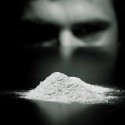Middle classes vulnerable to binge drinking
Alcohol is being used as a tool to mask the inner demons of the middle classes, the chief executive of a new body to tackle substance abuse claimed last night.
Binge drinking – commonly perceived as a problem associated with rowdy town and city centres – is equally evident in homes across Wales, according to Wynford Ellis Owen, who leads the newly-formed Welsh Council on Alcohol and Other Drugs.
Mr Owen, a minister’s son from Denbighshire who been in recovery from alcohol and drugs addiction since 1992, chaired the organisation’s first meeting in Cardiff last night.
He claims that the Welsh Assembly Government’s 10-year “harm reduction” strategy is stabilising alcohol and drug addiction in Wales – but not stopping it.
“The Assembly is containing the problem but we want to eliminate addiction altogether,” he said.
“People tend to try to escape life, through turning to binge-drinking, drugs, television, food, pornography, gambling and any means open to them, in order to try to flee their inner feelings.
“For example, a heroin addict might substitute it with methadone but, although it will change their mood, their way of thinking and emotions don’t change.
“Most substance misuse treatments are not good enough.
“We need to look at all these addictions and look at what they do for us that we cannot do for ourselves.
“I had to ask myself that question all those years ago.
“As a young man going to a party I would drink before I got there.
“Basically I was drinking so that I wouldn’t have to be myself.
“But it took guts and courage for me to confront the burden of being human; feeling nervous, insecure and realising that I didn’t know all the answers to all the questions.
“I realised I didn’t have to be perfect and people could see me for how I was.”
He set up a treatment centre in Cardiff and admits that he periodically feels unable to cope with the scale of the alcohol problem in modern Wales.
According to the Assembly Government’s Substance Misuse Strategy for Wales 2008 to 2018, half of all men and a third of all women in Wales admit to drinking more than the recommended safety limits, with one-in- four men and one-in-10 women admitting misusing alcohol.
“It is not just the binge drinkers,” he said.
“Deaths from alcohol misuse have doubled over the last 15 years.
“Out of 40 countries worldwide, Wales had the highest percentage of 13-year-olds reporting having been drunk more than twice – 27% of boys and 26% of girls.
“And alcohol is the cheapest it’s ever been. We’re in big trouble.
“Most of this problem is hidden, noticed only by the bottle recyclers of Wales and by the sufferers themselves, who must be in abject despair and suffering from unbearable loneliness and fear. Children are the main victims of this hidden harm and the partners, husbands and wives.
“I know that I was afraid to be me. But I am now enjoying being me and the freedom that it brings.”
Yesterday was the first time the council and the three registered treatment centres in Wales – Ty’n Rodyn/Hafan Wen in Bangor, Brynawel House in Llanharan and Rhoserchan in Aberystwyth – worked together to tackle the wider debate on addiction therapy.
Dr David Best, a reader in Criminal Justice at the University of the West of Scotland, who spoke at the meeting, criticised the standard of substance dependency treatment.
He said: “Most substance use treatment is not good enough.
“And that treatment itself is not enough – it is not sufficient in its current form to support recovery.
“The most important factors in sustaining recovery were ‘moving away from substance-using friends’, suitable accommodation and support from non-using friends.
“It was the development of a support network that allowed recovery to be sustained.”
source: Western Mail

